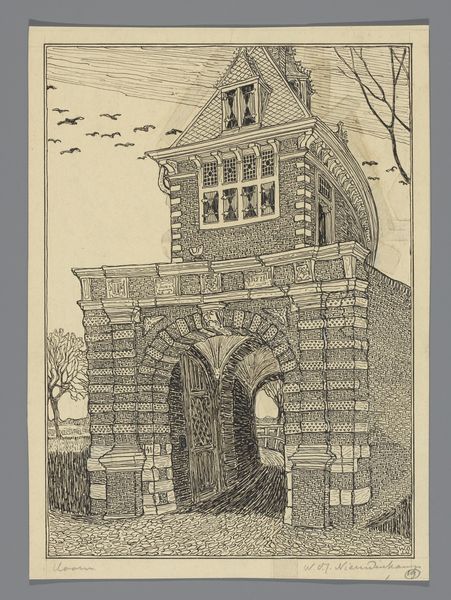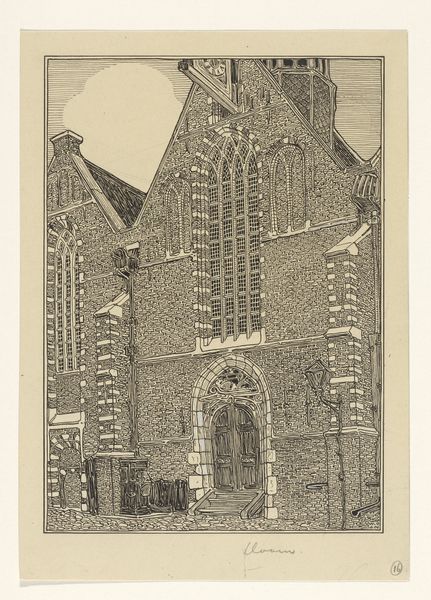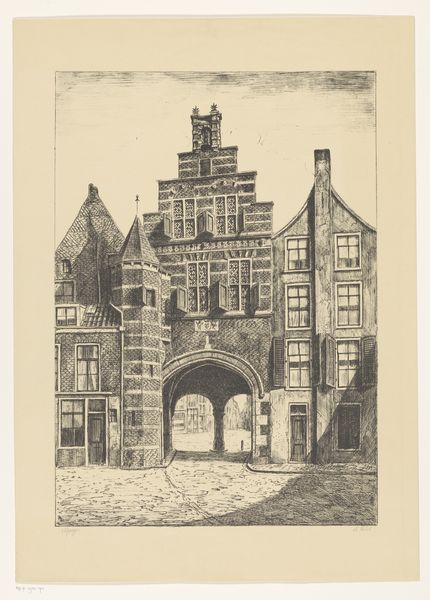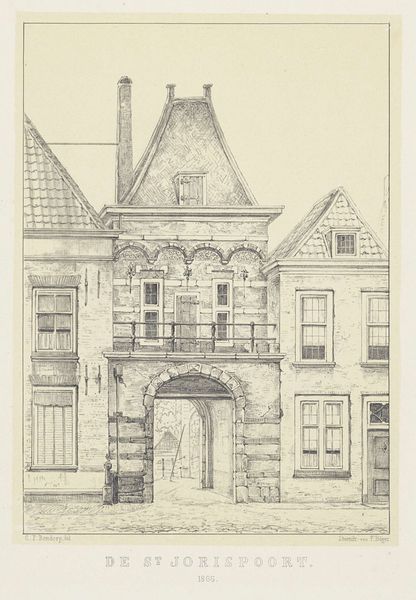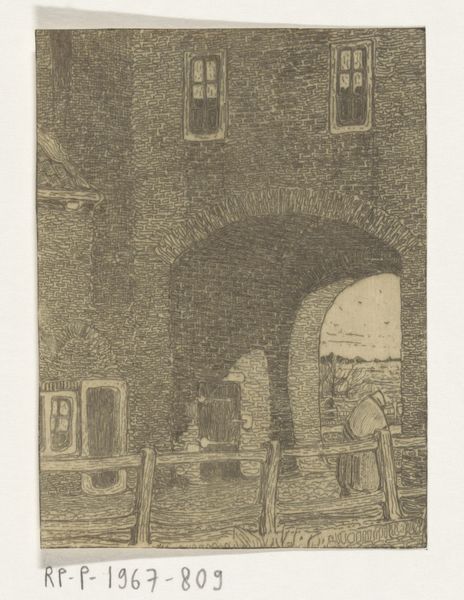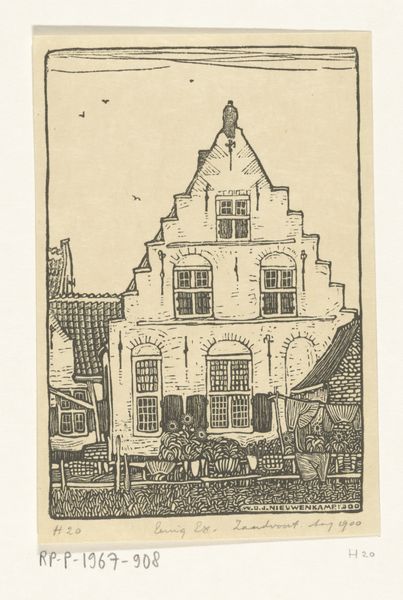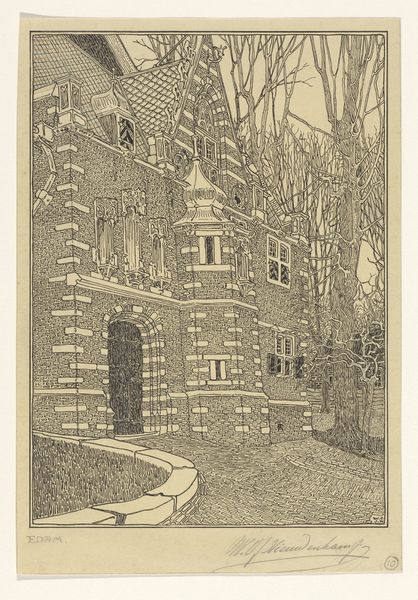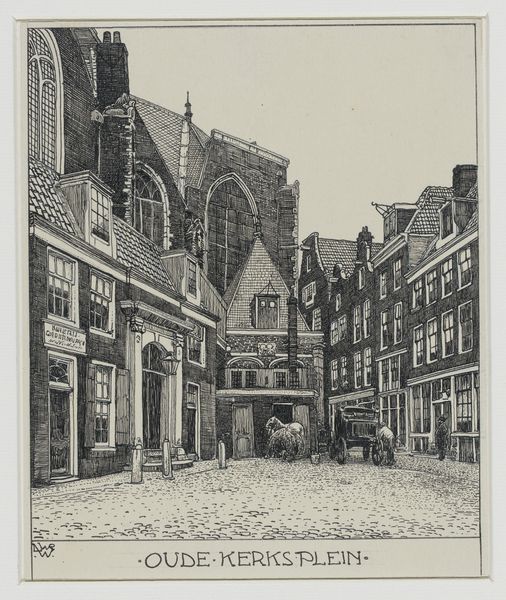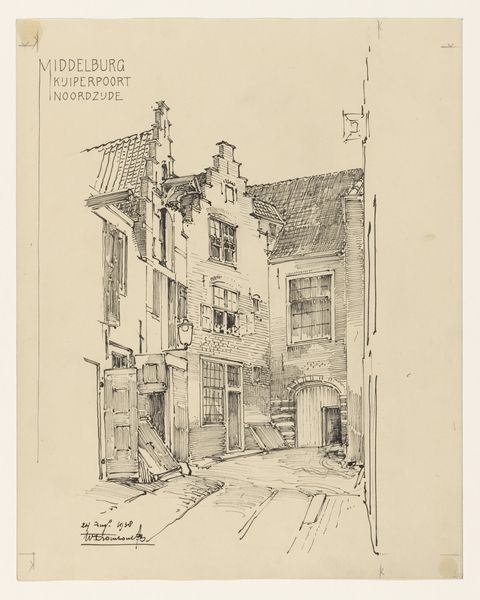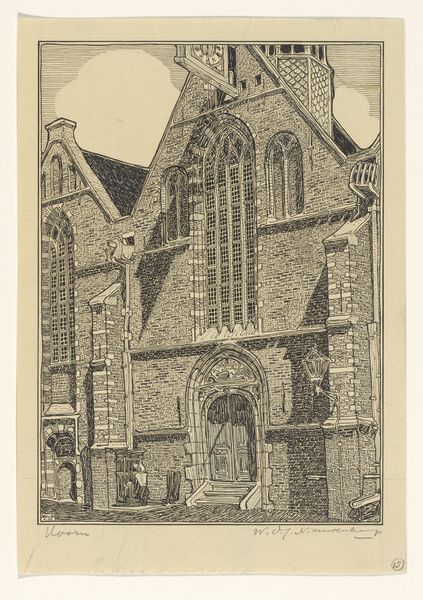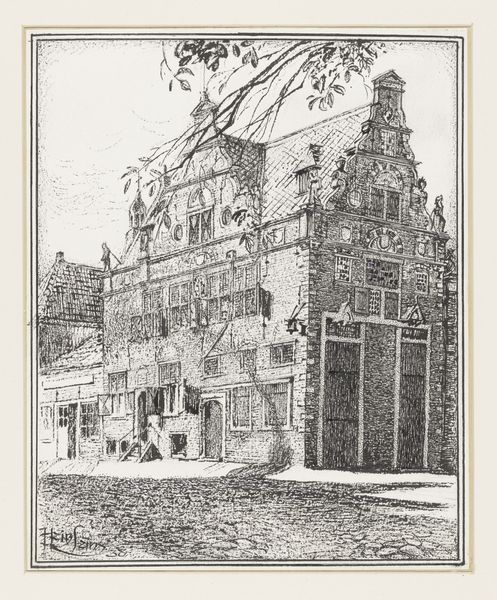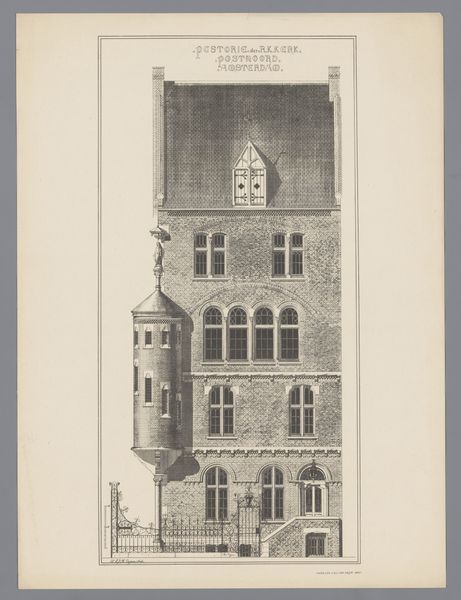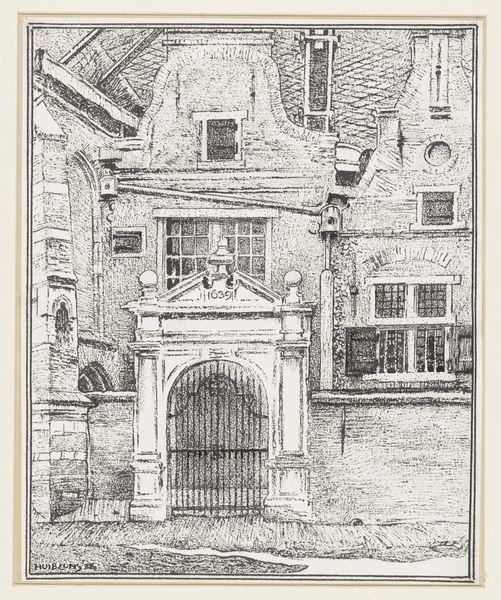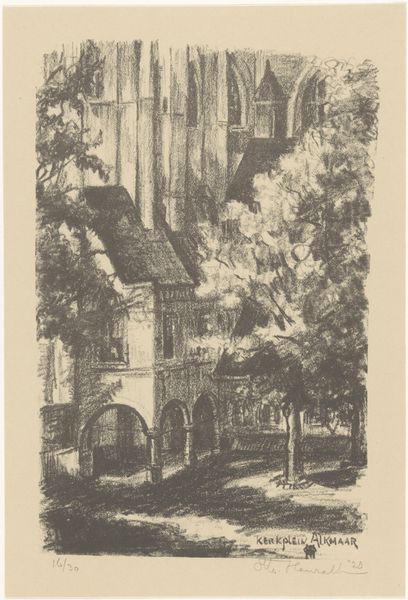
drawing, paper, ink, architecture
#
drawing
#
dutch-golden-age
#
paper
#
ink
#
line
#
cityscape
#
architecture
#
realism
#
building
Dimensions: height 237 mm, width 166 mm
Copyright: Rijks Museum: Open Domain
Curator: Wijnand Otto Jan Nieuwenkamp created this ink drawing on paper, titled "Gezicht op de Damsluis te Edam," in 1897. It offers a highly detailed view of a sluice gate in Edam, Netherlands. Editor: It’s so meticulously rendered! The sheer density of lines is almost overwhelming, yet it creates a remarkably tactile feeling. It's as though I could reach out and feel the cool, damp stone. Curator: Absolutely. Nieuwenkamp, working at the end of the 19th century, taps into a long tradition of Dutch cityscape painting. Edam itself, with its canals and brick architecture, has a rich mercantile history that is palpable in this work. What resonates, though, is that these cityscapes privilege an idealised form of history and belonging, yet erase more contemporary anxieties. Editor: Erasure, yes! I felt that almost instinctively. I'm immediately drawn to that covered bridge. There’s such a strong sense of enclosure there, of shadowed secrets, isn't it strange how it obscures the sunlight just where you'd expect openness? It creates such a quiet, intense, almost claustrophobic feeling in the piece. Curator: I see that, and I think your feeling resonates. If we consider how these kinds of cityscapes often reinforced dominant cultural narratives, the shadows perhaps offer an unacknowledged glimpse of the city’s other, less visible stories, stories perhaps of those excluded from this bourgeois ideal. Editor: So, almost a haunting then? A city's unconscious seeping into the perfectly ordered brickwork? I love that! This seemingly simple drawing really digs into the collective psyche. Curator: Precisely! And beyond a "haunting," we must contextualize that these forms of erasure actively create and enable harm onto marginalized identities. Editor: It’s fascinating how Nieuwenkamp uses such rigid lines to create such depth of feeling, and the political context just deepens that emotion. I think I'll walk away from this seeing much more than just an old building. Curator: Yes, it’s a reminder of how a seemingly straightforward cityscape can reflect complex societal power structures and hidden narratives waiting to be uncovered.
Comments
No comments
Be the first to comment and join the conversation on the ultimate creative platform.
